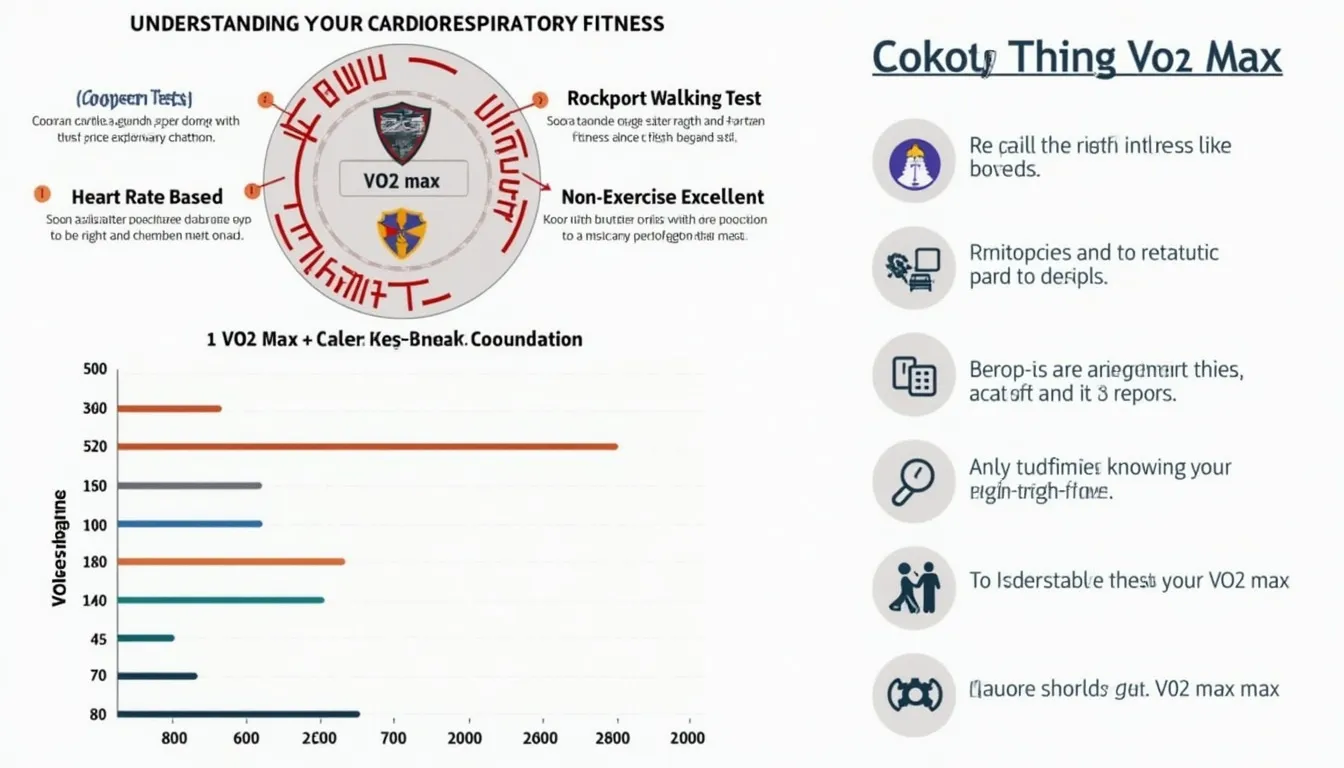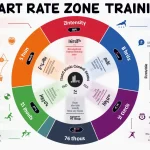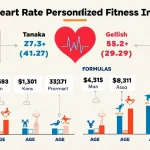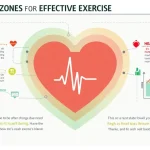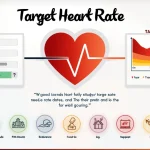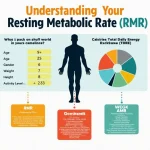How to use the tool
1 • Cooper Test
- Select Cooper Test.
- Type the distance you covered in 12 min—e.g., 2 900 m or 3 150 m.
- Press calculate to view VO₂ max.
Formula
$$VO₂_{max}= rac{Distance\;(m)-504.9}{44.73}$$Example: 2 900 m ⇒ (2 900 − 504.9)/44.73 = 53.6 ml/kg/min.
2 • Rockport Walking Test
- Select Rockport Walking Test.
- Enter 170 lb, age 45 yr, male, walk time 15 min, HR 135 bpm.
Formula
$$VO₂_{max}=132.853-0.0769W-0.3877A+6.315G-3.2649T-0.1565HR$$G = 1 male, 0 female
Example: Inputs above give 38.5 ml/kg/min.
3 • Heart-Rate Method
- Select Heart Rate-Based Estimation.
- Age 30 yr, resting HR 58 bpm.
Formula
$$VO₂_{max}=15.3\times rac{(220-Age)}{Resting\,HR}$$Example: 15.3 × 190/58 = 50.1 ml/kg/min.
4 • Non-Exercise Estimate
- Select Non-Exercise Estimation.
- Input: female, 40 yr, 68 kg, 165 cm, activity level 4.
Formulas
First compute $$BMI= rac{Weight\,(kg)}{(Height\,(m))^{2}}$$
Then
- Males: $$VO₂_{max}=60.0-0.55A-0.22BMI+6.4L$$
- Females: $$VO₂_{max}=48.0-0.37A-0.22BMI+6.4L$$
Example: BMI = 25.0; VO₂ max = 53.3 ml/kg/min.
Quick-Facts
- Healthy adult VO₂ max: 35–45 ml/kg/min (ACSM, 2021).
- Elite cyclists exceed 70 ml/kg/min (Joyner & Coyle, 2008).
- Cooper test correlates r = 0.91 with lab values (Cooper Institute, cooperinstitute.org).
- Normal resting HR: 60–100 bpm (Mayo Clinic, 2022).
- Non-exercise equation ± 5 ml/kg/min error (Jackson et al., 1990).
FAQ
What is VO₂ max?
VO₂ max expresses the highest rate at which your body uses oxygen during hard exercise, reported in ml/kg/min (ACSM, 2021).
Why choose the Cooper test?
It needs only a stopwatch and track, yet predicts lab VO₂ max with 91 % accuracy (Cooper Institute, cooperinstitute.org).
When is the Rockport test better?
Use it if you prefer brisk walking; it stresses joints less while giving reliable estimates for novices (Kline et al., 1987).
How accurate is the heart-rate method?
Its standard error is roughly ±7 ml/kg/min because it depends on resting HR variability (Uth et al., 2004).
What activity level should I pick?
ACSM defines level 3 as 150 min moderate or 75 min vigorous weekly (ACSM, 2021).
How often should I retest?
Every 4–6 weeks captures training adaptations without daily noise (“A change of 3.5 ml·kg⁻¹·min⁻¹ is clinically significant” — ACSM Guidelines, 2021).
Can medication affect results?
Beta-blockers lower heart rate and can under-predict VO₂ max by up to 10 % (Mayo Clinic, 2022).
How do I improve my VO₂ max?
Interval training at 90 % max HR raises VO₂ max ~5–15 % within eight weeks (Laursen & Jenkins, 2002).
Is this tool helpful?
Important Disclaimer
The calculations, results, and content provided by our tools are not guaranteed to be accurate, complete, or reliable. Users are responsible for verifying and interpreting the results. Our content and tools may contain errors, biases, or inconsistencies. We reserve the right to save inputs and outputs from our tools for the purposes of error debugging, bias identification, and performance improvement. External companies providing AI models used in our tools may also save and process data in accordance with their own policies. By using our tools, you consent to this data collection and processing. We reserve the right to limit the usage of our tools based on current usability factors. By using our tools, you acknowledge that you have read, understood, and agreed to this disclaimer. You accept the inherent risks and limitations associated with the use of our tools and services.
